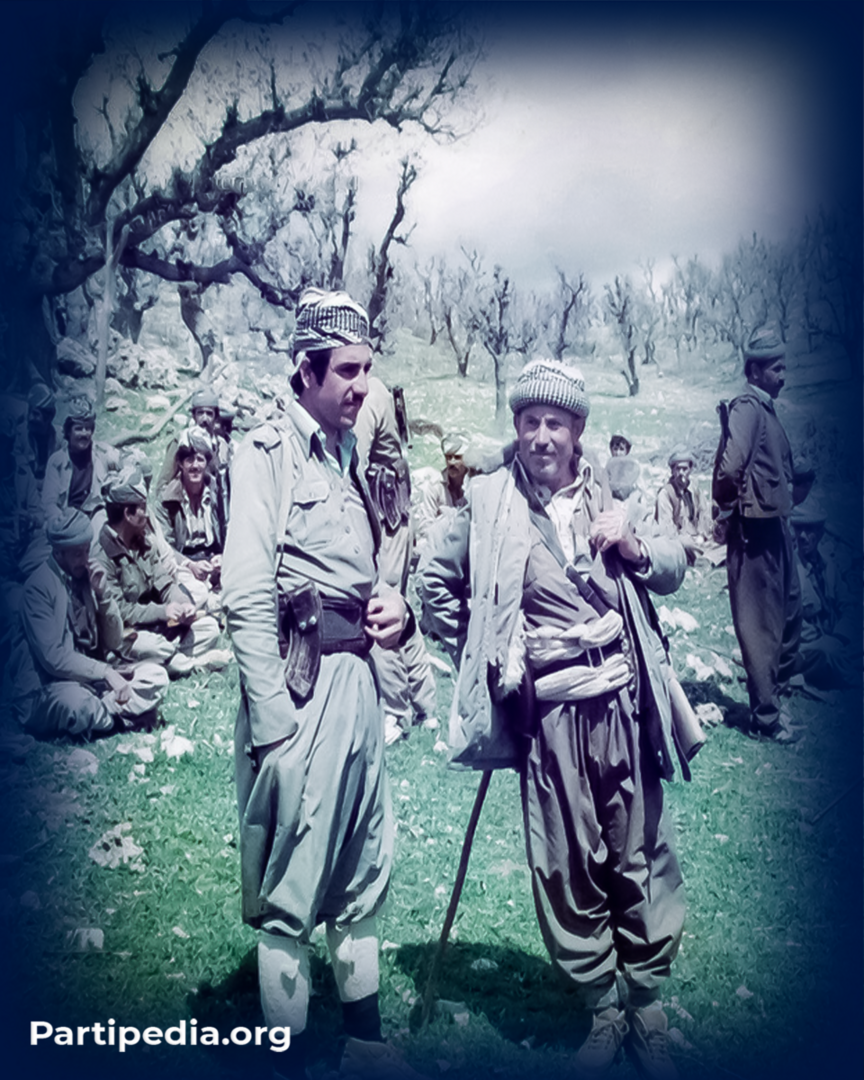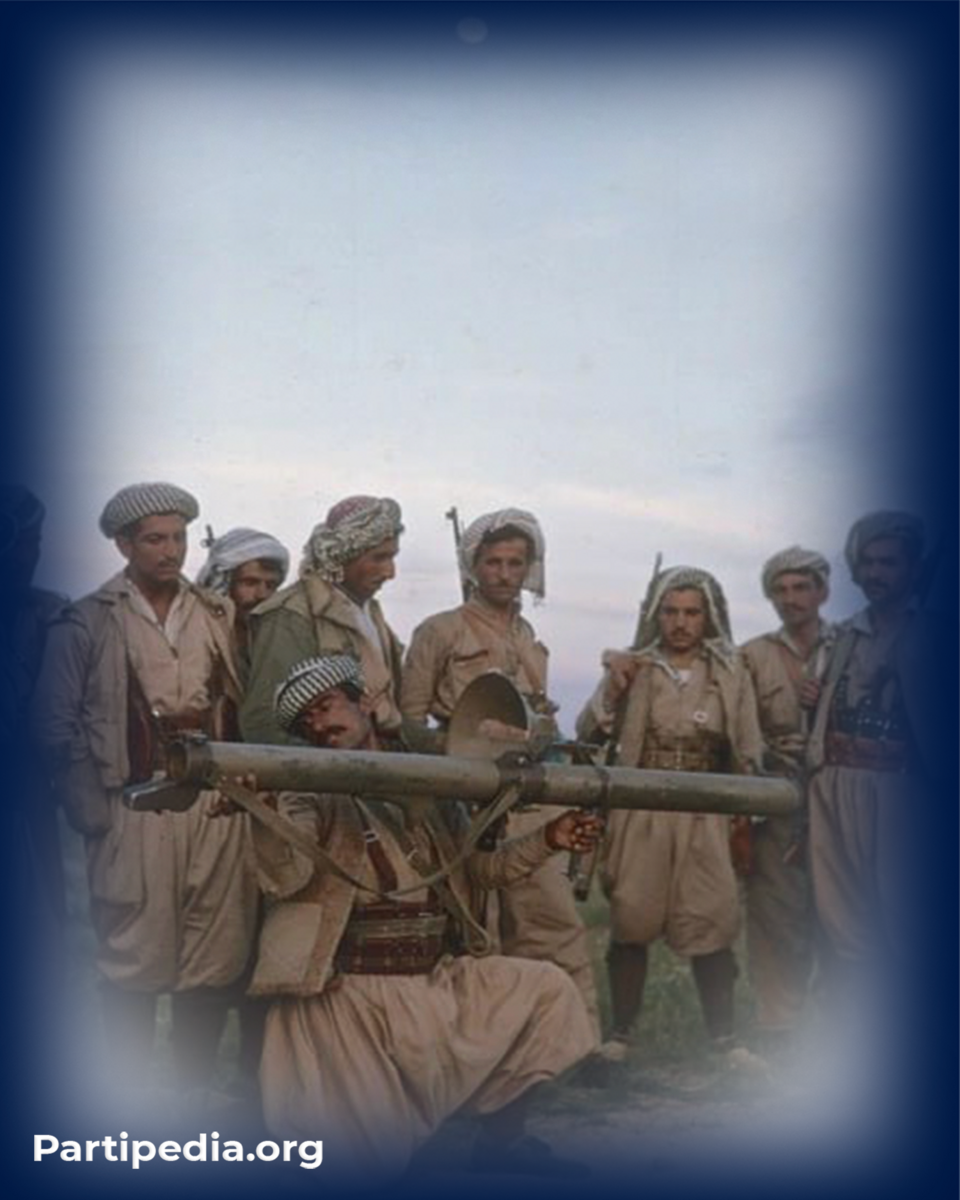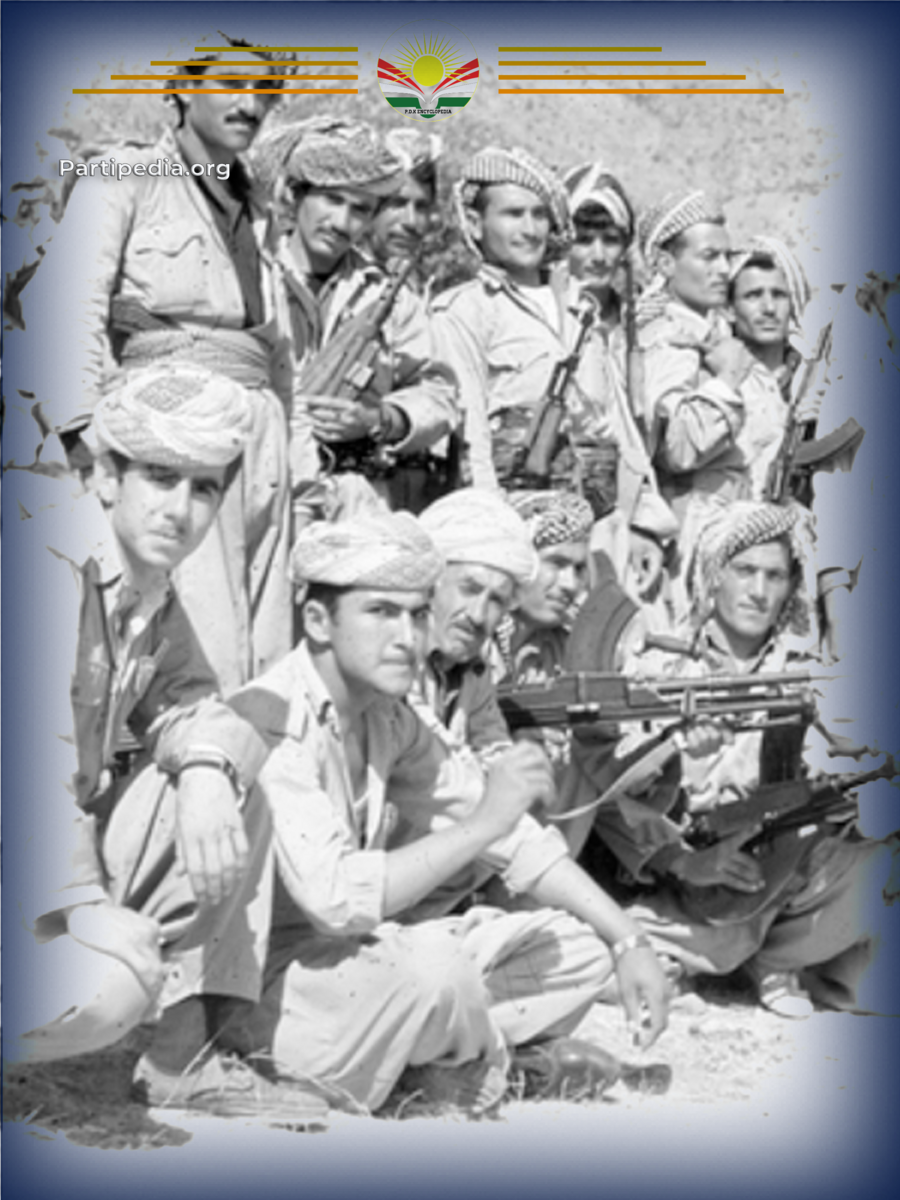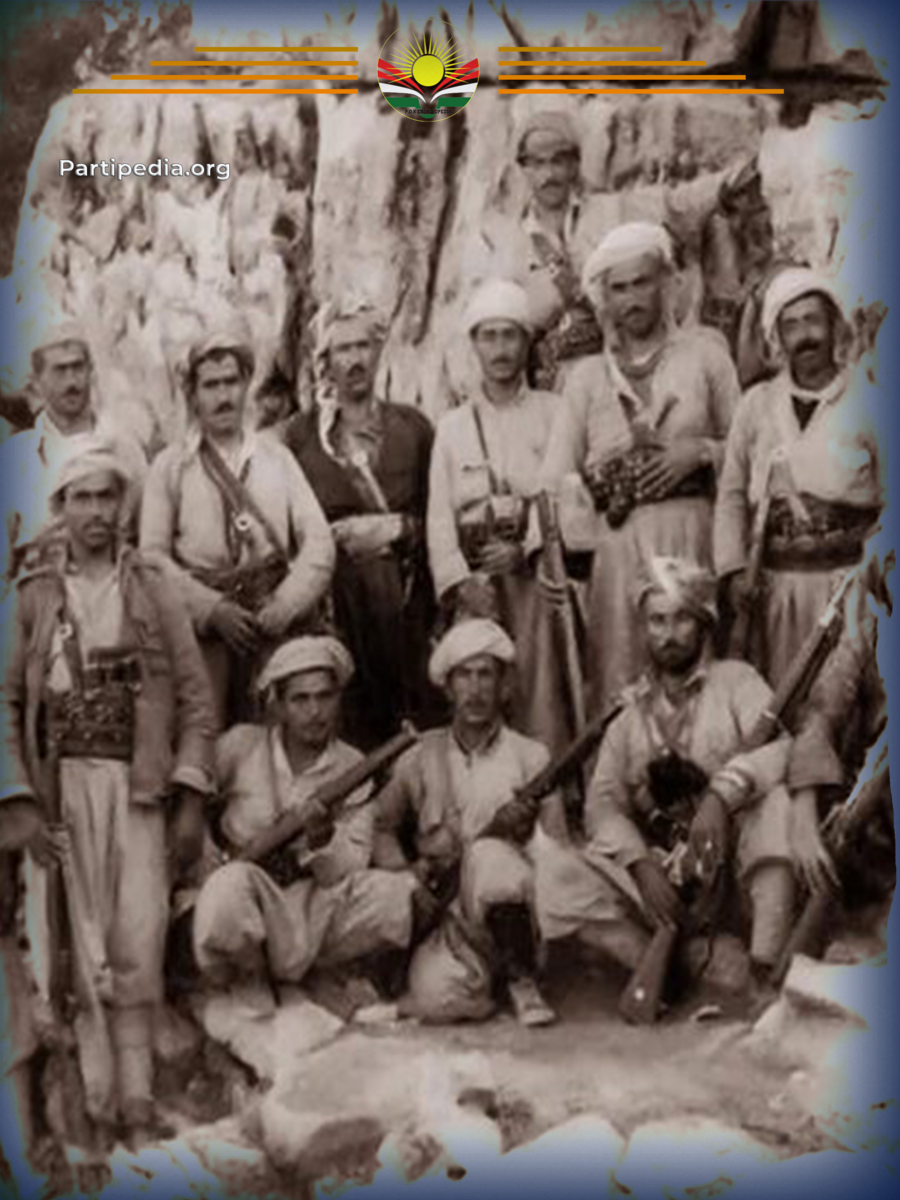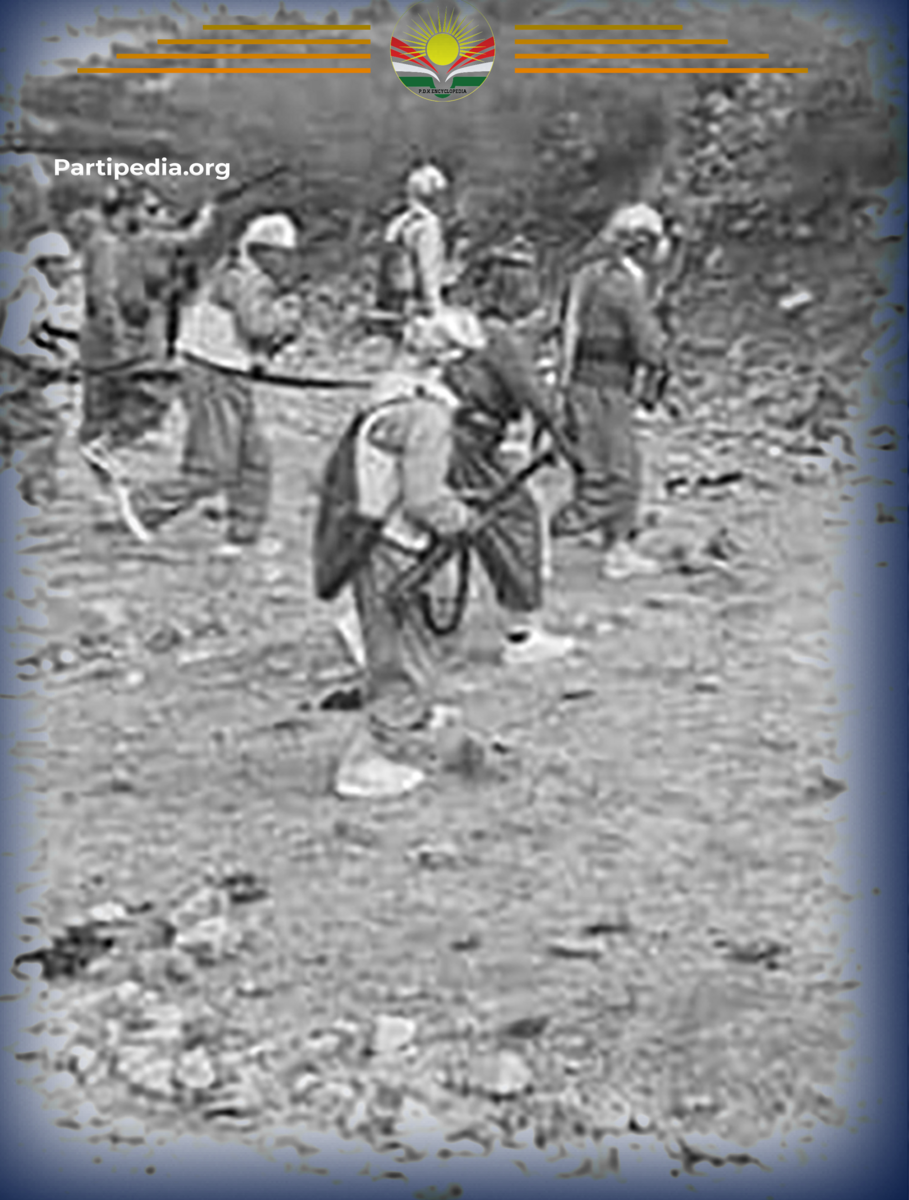The antagonistic policies of the Iraqi government toward Kurdistan were clearly reflected in the actions of its military forces and mercenaries, who routinely launched campaigns aimed at exterminating the Kurdish people and obliterating their villages. Despite these oppressive tactics, the Peshmerga forces consistently thwarted these military operations, demonstrating resilience and determination. This dynamic was particularly evident in 1987, as Peshmerga activities in the Badinan region escalated to a broader and more intensive phase. Their constant harassment of government forces created an unrelenting state of conflict.
On the morning of May 5, 1987, a significant Peshmerga offensive was launched against the 111th Khafifa Battalion’s headquarters in Dereluk, a sub-district in Amedi. The operation involved Peshmerga units from the Amedi Regional Committee, three groups from the Gulan Regional Committee, two from the first branch, and a national force under the command of Dr. Roj Nuri Shawes, Colonel Ali, and Sayed Salih. The battalion’s advisor, Sheikh Nuri Barzanji, was also present during the battle.
After an intense and bloody confrontation, the Peshmerga succeeded in capturing the battalion’s headquarters, as well as 81 strategic positions surrounding it. This operation dealt a significant blow to the Iraqi military, further reinforcing the Peshmerga's strategic dominance in the area ([3]).
In the course of this operation, the Peshmerga forces endured significant losses, with 38 fighters martyred and more than 40 taken prisoner. Among those captured by the Peshmerga were First Lieutenant Abdul Hamid Khatab Abdullah, the regiment commander, three soldiers, a deputy officer, and thirty mercenaries (jash). Additionally, sixteen other mercenaries surrendered voluntarily to the Peshmerga forces.
The government forces sustained substantial damage in the battle. The Peshmerga destroyed an armored vehicle and nine military vehicles and seized a considerable arsenal of weaponry and equipment. This included 200 Kalashnikov rifles, RPGs, an 82mm mortar, a 5.14mm anti-aircraft gun, a Grnoff machine gun, fourteen wireless communication devices, and a vast quantity of ammunition for artillery and RPGs. These resources significantly bolstered the Peshmerga’s arsenal and marked a decisive victory against the Iraqi military.
Following the conclusion of the Peshmerga's attack at 1 p.m. that day, Iraqi warplanes launched a retaliatory bombing campaign targeting the area, including Peshmerga bases and headquarters. Amid the bombardment, the Peshmerga air defense forces successfully shot down a helicopter using a San-7 missile. Seven soldiers aboard the helicopter were captured by the Peshmerga, including an aviation colonel named Hamid Saeed and the lead pilot, First Officer Nizar Adnan. This remarkable feat significantly boosted the morale of the Peshmerga forces.
The attack, however, was not without cost. The Peshmerga sustained casualties, with one fighter martyred and three others wounded.
It is worth noting that the revolutionary artillery played a significant role in the operation, shelling the bases and headquarters of the Iraqi army and government forces during the battle. Furthermore, the aftermath of the attack highlighted the morale and unity of the Peshmerga forces. On May 6, 1987, one day after the Peshmerga's successful assault on the Iraqi forces, President Massoud Barzani, the leader of the Kurdistan Revolution, personally contacted the Peshmerga officials stationed on Mount Gara via wireless communication. He extended his congratulations to them for their remarkable victory.
Sources:
[1] - https://ckb.wikipedia.org
[2] - هۆژین مەسعود سەرنى، شورەشا ئیلونێ ل دەڤەرا بەهدینان ١٠٦١- ١٩٧٥، چاپى یەکەم، ٢٠١٨.
[3] - مهسعود بارزانی، بارزانی و بزوتنهوەی ڕزگاریخوازی كورد، بهرگی چوارەم، ١٩٧٥-١٩٩٠ شۆڕشی گوڵان، بهشی دووەم، چاپی یهكهم، چاپخانهی ڕوكسانا، ٢٠٢١.




